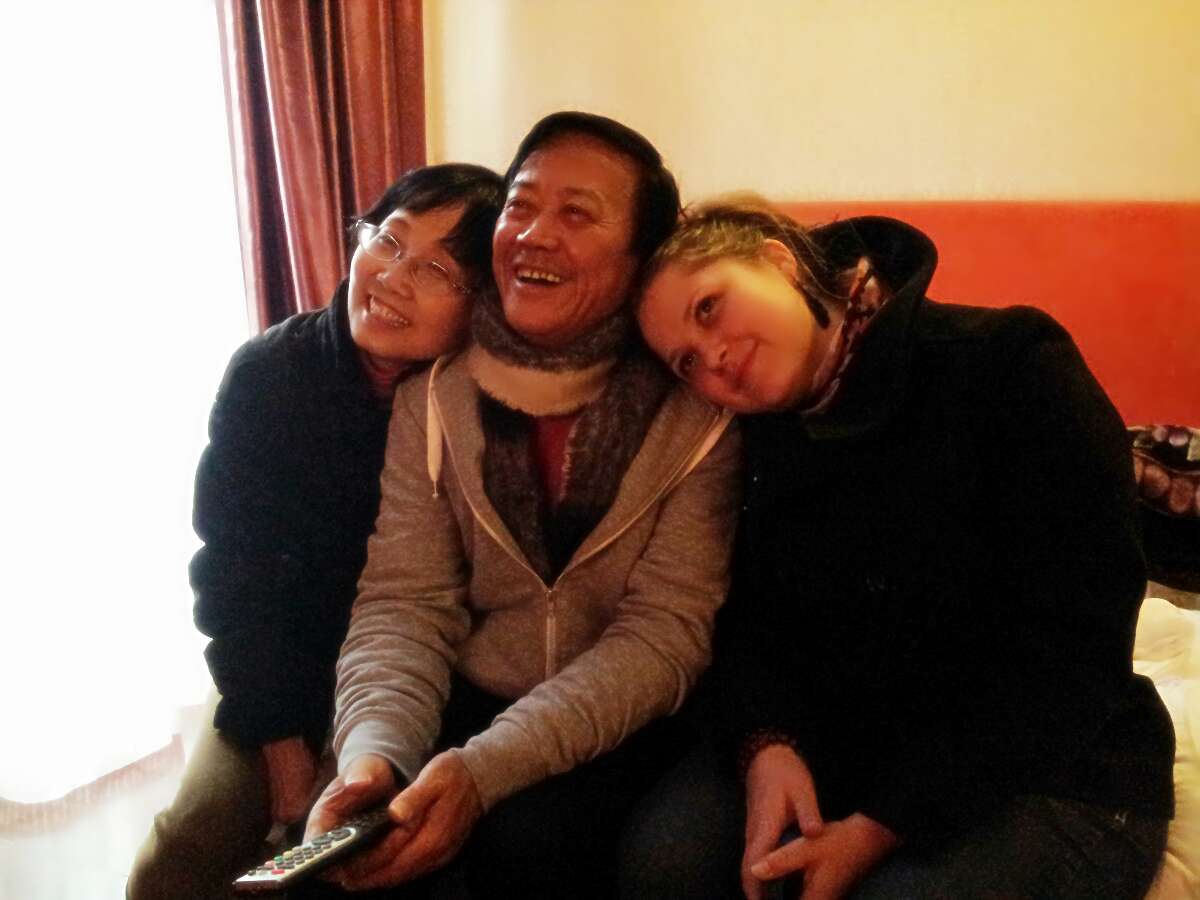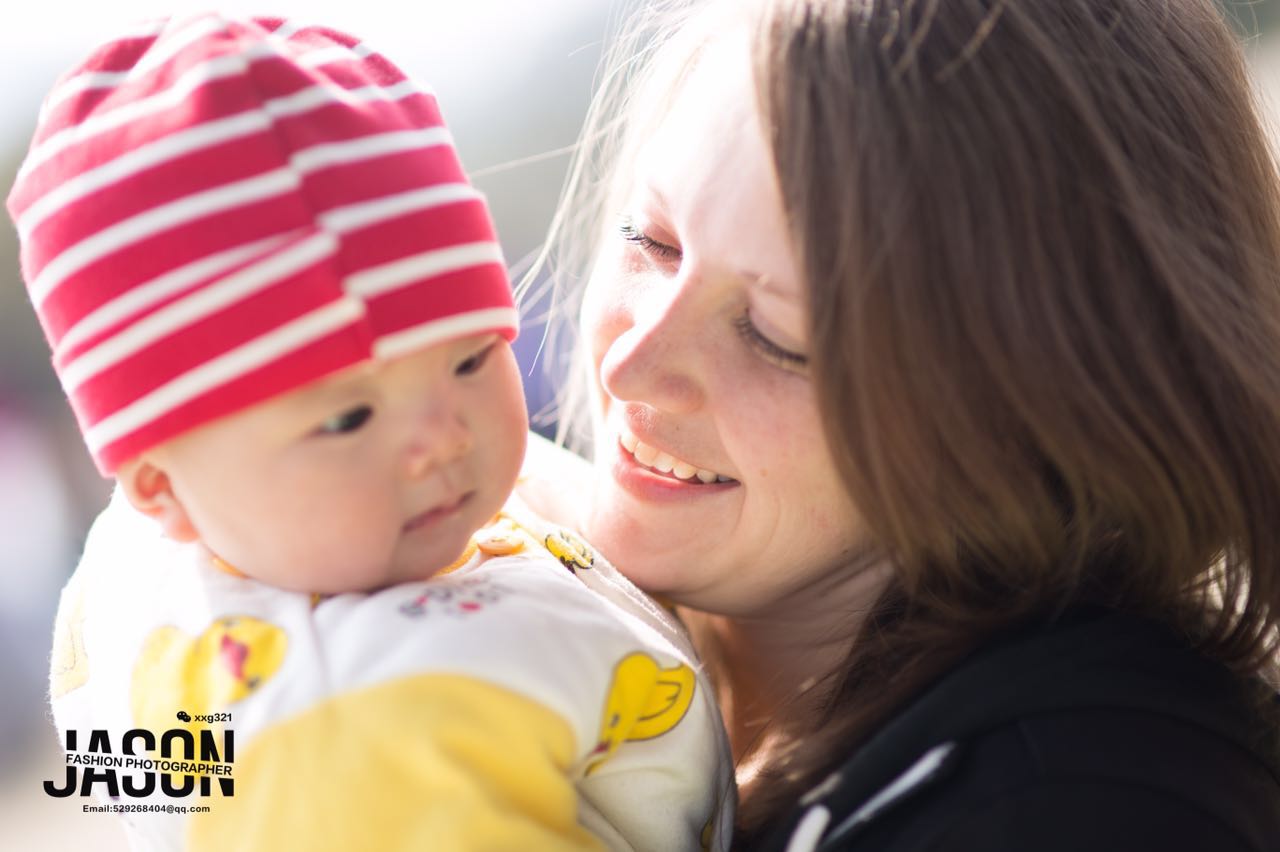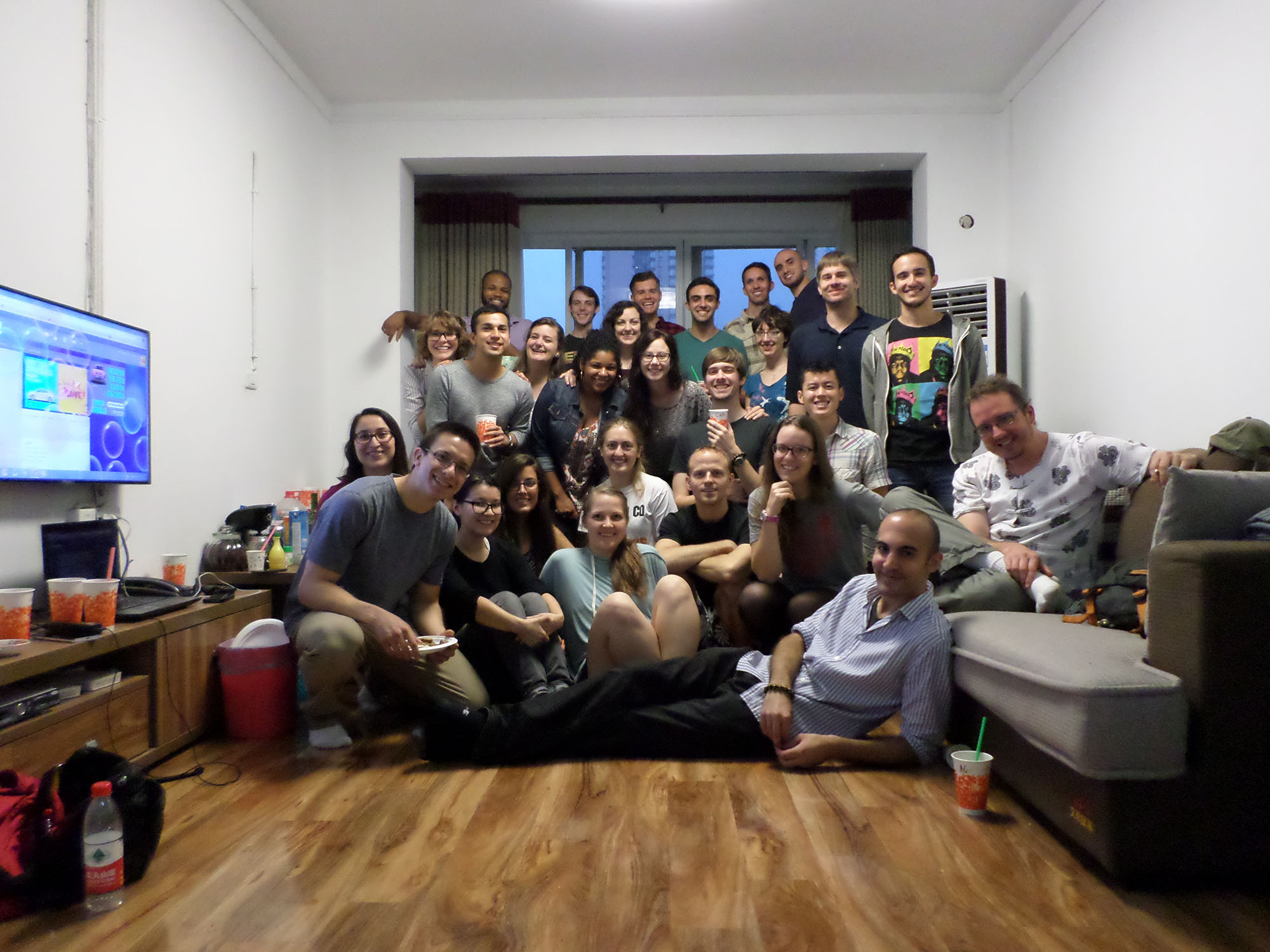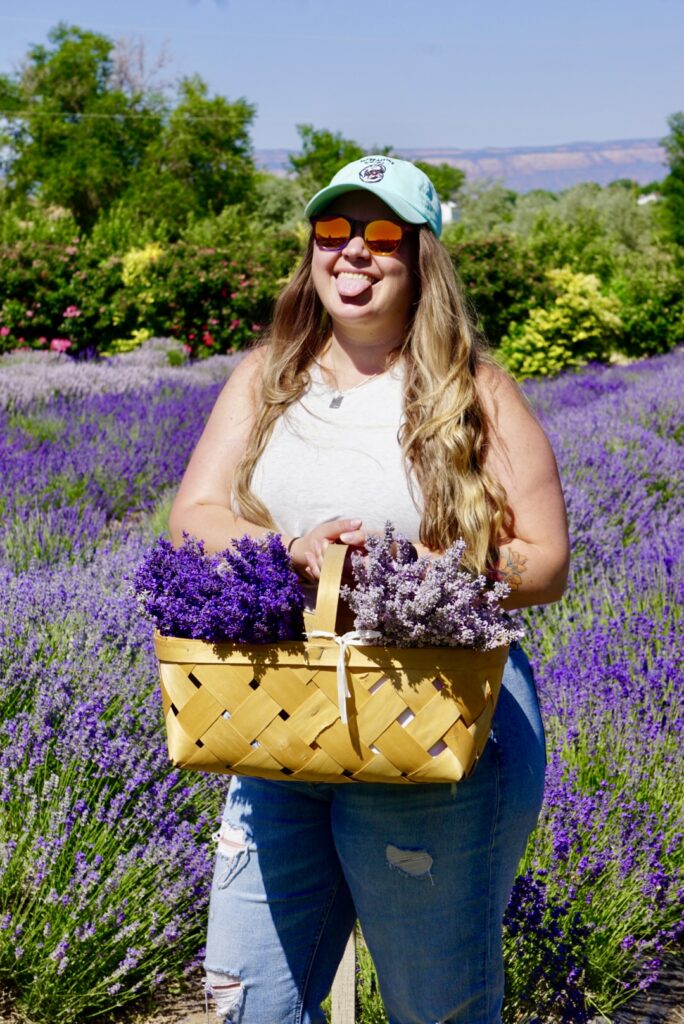My name is Yin Xinyi (尹心怡). I’m not American born Chinese.
I’m not from China and have no Chinese lineage. Colorado was where I was born and raised. I’m a mixture of a ton of European genetics, mostly Hungarian. I am a proud daughter of two supportive American parents and a sister to three other incredible American siblings.
How I Got My Chinese Name

In 2014, a family I knew for two months unofficially adopted me. I was a Peace Corps Volunteer in training at the time on the cusp of swearing into a two-year service 8,000 miles away from everything I knew in China. They were my host family.
Every day, my host mom would walk me to the bus stop to return to my host sister’s apartment, and I would struggle counting to 100 in Chinese. It was the first time I learned a language and it was the first time I was this far from home.
My host father hated the Chinese name my language coaches gave me. So he gave me a new name, one more suitable for me.
Yin Xinyi. Xin – means heart. Yi – means joyful. Yin is the surname of my host father. This family from a different walk of the Earth loved me so much, they gave me their last name.
When I used to go places with my host parents, strangers would ask them who I was, and my parents simply said, “this is our daughter.”
But our time living together was short. Soon I would move to a permanent site in a different city. By the time the swearing-in ceremony had come around, you would’ve thought my family and I were never going to see each other again. The way we cried and held each other. Other families were staring at us like we were strange, as we hugged goodbye.
It was eight weeks I lived with this family. Eight weeks and we loved each other like we had known each other for a lifetime.
In 2018, two years after I had been home in the US and done with my Peace Corps service, my host parents came to America. My American parents and my host parents met for the first time. Their encounter was something I couldn’t have fathomed in the stories I write. In their mother tongues, they thanks each other for taking care of me as if I had lived in both countries my whole life. See for yourself.

This life-long bond happened because I made a bold move to go to Peace Corps China. And now, after over two decades of service and building positive relationships in China, the Peace Corps program is being removed.
I’ve thought about this news for the past few days and there is a lot I want to say about it.
Teaching English With Peace Corps

I was a Peace Corps Volunteer in Chongqing, China. If you didn’t know, Peace Corps China volunteers don’t serve in Beijing, Shanghai, Hong Kong, and all other cities in China you might know. Peace Corps Volunteers don’t serve in places heavy with foreign teachers getting paid $2,000 or more a month. We serve in schools where they are less likely to have a foreign teacher or less able to afford one.
I taught in a high school in a smaller district of Chongqing City called Dadukou. I worked at a school with kids who could barely say “Hello, my name is…” in English. My kids did poorly on their test scores and were sent to this school for being weaker than others.
For many of my students, I was the first foreign teacher they had and the first foreigner they’d met. This may not make sense to you, but when you live in a homogenous culture and you see someone who looks drastically different than you, it’s shocking. Before me, local teachers were teaching English classes in the mother tongue.
I taught 50 kids per class in 40 minutes. Less than a minute per student a week.
Some kids were just plain not into English, but for some kids who were studying to go abroad, they got to learn English in a native environment, which is an opportunity a lot of kids don’t get in China.
Right now, those students are living their lives abroad. There, of course, are kids who don’t give a shit about learning. However, I got to be a part of the shining few lives that gobbled up that 60 seconds or less they got to spend with me every week. They wanted to be there. It was valuable precious moment to them and me.
Everyday China As a Peace Corps China Volunteer

I struggled as a teacher in that school to teach all the kids effectively and make sure they each had that moment of my attention. My goal was to be the best role model for them and influence them to believe in themselves. I wanted to make sure I lived up to the Peace Corps missions.
On the days when I didn’t struggle, I was outside, seeing the city, sitting on trains, and sitting in local coffee shops learning Chinese. I was living a full life in China. I so badly wanted to fit in, adapt, be part of the community, and more than anything, make relationships with the people around me. Doing so, enhanced my quality of life in China and created an everlasting feeling of this country being my home.
Some days I made small talk with strangers who approached me to ask if they could speak English with me because they never had an environment to practice in. There are a lot of reasons the average Chinese person likes us, and a lot of it has to do with our open-minded, understanding, and accepting personalities. In a culture where that is not always encouraged, imagine how it must feel to be able to tell your secrets and your feelings to a stranger that is less likely to judge you. The more I learned the language, the easier it was to learn about the people and their culture.
Loving China was made possible by me letting it into my life.
How I Overcame Language Barriers in China

Language, more than anything, prevents America and China from understanding each other. I learned the language so I could talk to my friends, get to know people, eat the food, travel to other cities, learn the history, and hear the mundane lives of the people.
How could one overcome such huge language barriers and cultural differences? How could we even begin to understand each other when the language alone was this massive force between cultures?
I asked a fellow Peace Corps China friend this once. I said, “How do you tell them who you are when you can’t even say the words.”
“You show them.” She humbly responded.
Later that evening, she and I were walking back to my apartment and I ran into the old man in my building who often took his 1-year-old grandson on an after-dinner stroll. The grandfather was holding his grandson at his hip and smiled when he saw me. I smiled back. I loved these two. When I approached, in Chinese the grandfather said, “Say hi to your foreigner auntie.” The child beamed a toothless grin. I pinched his cheek and his little fist clamped around my forefinger. I gave the little guy a kiss on his chubby cheek and he giggled.
After that single perfect moment, we parted. While I breathed in the innocence and sweetness of that child, my friend smiled and said, “that’s how you show them who you are.”
Building Relationships and Understanding Through Kindness

Every moment I spent in China as a foreigner, as an American, and every minute I was showing my personality, my kindness, my understanding, and my love, I was teaching people about my culture, my people, myself. I was showing people that while I live under my government, that doesn’t make me my government. We need to realize that is the same truth for China. They are not our enemies.
I knew that every time I walked out the door of my apartment in Dadukou, most people may have never seen a foreigner before, so most likely they were going to talk about me. The way I acted was going to be the topic of discussion at a stranger’s dinner table that evening. So, I chose to be kind, strong, happy, humbled, enlightened, grateful, and I chose to appreciate this country and love it as my home.
If people were going to be talking about me or putting me in a stereotype, I wanted that stereotype to be ‘kindness’ and ‘love’. I wanted to be a lasting good memory.
In my mind, I knew when strangers met me, they would tell someone about the kindness of the American they met that day, that me being who I was would influence people to think differently about what the news tells them about America or other foreign countries. I knew that being a good, kind, helpful, understanding, and open person would make a lasting memory for people I encountered in China.
This is what being a Peace Corps China volunteer actually is. It’s about, as Hermione Granger would put it, “making friends.” Cross-cultural understanding and one love.
Loving and Accepting Our Differences and Similarities

There will always be things we don’t agree on in this world. But I don’t think it means we should pull Peace Corps out of China because a guy in the senate who has never experienced Peace Corps China, to begin with, thinks it’s bad for our country. He doesn’t know about the Peace Corps and the mission, and he doesn’t know about the actual People of China. If he had served two years in China, he might feel differently. It sounds like there’s a very good chance even if he did experience it, he would still be an asshole.
Peace Corps China is important, not because they are a developed/developing country, but because we as a world we need to learn how to better understand and accept other cultures. We don’t need to lay down and accept the flaws of a country, but we can join hands and create a better one. We need to be mindful of the kind of world we leave behind for future generations and we can only do this together.
The 3 Main Goals of Peace Corps

Peace Corps wasn’t just about teaching English.
In case you needed a refresher on the goals of Peace Corps Volunteers, here they are. And not once do they mention go to a developing country first and foremost. The missions have clearly been to bridge the huge gaps between cultures to create lifelong friendships and impacts.
- Help the people of interested countries in meeting their need for trained men and women
- Help promote a better understanding of Americans on the part of the peoples served
- Help promote a better understanding of other peoples on the part of Americans.
Say what you want about China. But I have never seen a more giving community than the people of China. I’ve never seen people share with each other and take care of each other like the people of China.
We are a small world. We all live on it together. The mass division created because of the egos of leaders is creating problems we don’t need. We are taking the Peace Corps out of China during a time when we need those cross-cultural relationships more than ever.
There will always be flaws in a country, population, and the world no matter where you go, but we need to focus on the positive aspects of what makes each country wonderful. We are facing huge global challenges and the last thing we need is even more global division. We are not enemies and we need to quit acting like we are.
I know how hard it must be for politicians to look at other people in other countries and relate to them in an objective way. Because why should you care about someone you don’t even know or has never walked on your path? It’s easier to just not face humanity and be dead to anyone outside their little bubble.
Relating to other cultures and peoples means losing their hatred and biases toward them. And stubbornly holding on to hate gives the illusion of feeling powerful. Relating to someone also relies on being vulnerable and open. And being vulnerable is perceived as a weakness. Therein lies ego and pride. Two things that do nothing for anyone and cause division.
My Final Thoughts On My Time in Peace Corps
Peace Corps China ending is no a graduation of the program, nor a job well done on contributing aid to the country. If it was, China volunteers would be happy about it. Peace Corps China ending this soon has everything to do with the biases and hatreds taking place within the very small-minded people running the US government.
We are all people on this planet. We all breathe, eat, walk, hug, love, and laugh the same, even if it’s in ways other cultures may not understand. Deep down, we want the same things. Deep down, selfish and arrogant politicians know this and they choose to ignore it for fame and a paycheck.
For more on China and my positive experiences living in this WONDERFUL country, go here.









